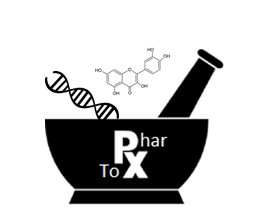Frederik-Jan van Schooten
event_seat Professor, Head of the department
Genetic and Molecular Toxicology
inbox F.vanschooten@maastrichtuniversity.nl
phone 043 3881100
account_balance 4.202


Prof. dr. Frederik-Jan van Schooten
Department of Pharmacology and Toxicology, NUTRIM School of Nutrition and Translational Research in Metabolism, Faculty of Health Medicine and Life Sciences (FHML), Maastricht University, The Netherlands.
Prof Van Schooten studied Biology at the Faculty of Natural Sciences of the Free University in Amsterdam, The Netherlands, and finished with a MSci in Medical Biology in 1985. From 1985, he worked as a staff member at the Netherlands Cancer Research Institute in Amsterdam and based on the research conducted here he obtained his PhD in 1991 at Leiden University. In 1991, he moved to the Faculty of Health, Medicine and Life Sciences at Maastricht University and in 2001 became Full Professor on the chair of Genetic Toxicology.
At Maastricht University, Prof Van Schooten heads the Department of Pharmacology and Toxicology and leads the Division Respiratory & Age-related Health of the NUTRIM School of Nutrition and Translational Research in Metabolism. He has more than 35 years of senior management experience in life sciences research, academic education, heading departments and faculty management, public health policy, and valorization of science. Published over 300 papers in peer-reviewed journals, including 50 with clinical research on breath biomarker discovery and the statistical handling of breath-based data. He obtained numerous grants for research and is external reviewer of Dutch and foreign scientific programs. He teaches in Bachelor and Master educational programs in Molecular Life Sciences, and supervised(s) 50 PhD students. Member of several editorial boards, including Journal of Breath Research and he is Associate Editor of Chemosphere, Elsevier. He was member of the Dutch Health Council and its associated ad hoc committees.
Prof Van Schooten’s research is within the field of molecular epidemiology developing biomarkers as indicators of inflammation, DNA damage and repair, and genetic susceptibility for disease. The overall aim is to better understand disease etiology and to develop opportunities for disease prevention, diagnosis and treatment. An important focus concerns the induction and prevention of chronic diseases (inflammatory diseases and carcinogenesis) focusing on inhalatory exposures (tobacco, vaping, microplastics, air pollution) or oral exposures (food processing mutagens, contaminants, supplements, microplastics), and applying both in vitro and in vivo models. His translational clinical research mainly consists applying a metabolomics approach in exhaled air through measuring volatile organic compounds (VOCs) by GC-TOF-MS for early diagnosis and monitoring therapeutic responses in inflammatory-related diseases of gut, liver and lung.
Associated Projects
Modulation of DNA damage and repair by Inflammation More »
Assessment of genetic variations as a predictor for smoking cessation and health risks. More »
Paternal and maternal exposure to genotoxins and health risks in their offspring More »
Characterisation and identification of volatile organic compounds in breath from patients and healthy controls More »
Environmental Cancer Risk, Nutrition and Individual Susceptibility More »

